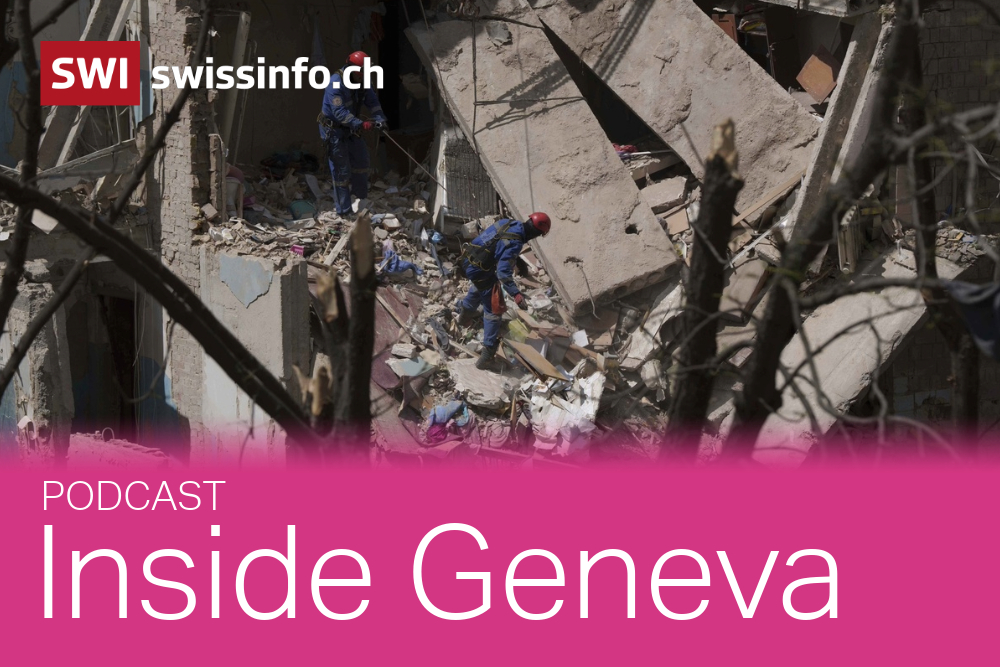
“In Afghanistan we focus on the progress”

As violence in Afghanistan reaches its worst levels since 2001, a Swiss human rights expert tells swissinfo.ch about the everyday challenges in the battered country.
Benoît Meyer-Bisch, a 30-year-old lawyer, has been working in Afghanistan for two years as a human rights advisor for the Swiss Agency for Development and Cooperation (SDC).
swissinfo.ch: You work in Kabul to improve human rights. What, concretely, do you do?
Benoît Meyer-Bisch: I’ve actually got three roles. First, I’m in charge of coordinating projects and programmes. Specifically, these are a civic education project in several villages in the north, supporting civil society and the independent human rights commission, and getting the government’s handling of human rights issues assessed by a body of experts.
Second, I advise the Swiss foreign ministry and the SDC about human rights issues. I also work with Afghan partners, talking to them about their strategies, institutional processes and their role as human rights advocates.
Third, I build up networks. Switzerland is very small – if we worked for human rights on our own, we wouldn’t get very far. As a result, we have to work with other donor nations, Afghan institutions and ordinary people.
swissinfo.ch: Do Afghan human rights institutions work?
B.M-B.: In 2002 there was nothing. Today there’s an independent Afghan human rights commission which is active across the entire country. Its members are Afghans and it has become very professional.
Unfortunately it isn’t funded by the state. Part of my work is to ensure the durability of the commission. So far it’s been financed by donor countries.
The human rights commission is not part of the government, but it has been written into the constitution. It is an instrument of the state but not of the government.
swissinfo.ch: How does cooperation work with the justice ministry?
B.M-B.: If no one in the government knows about human rights, laws will come along that completely go against human rights. Therefore we initiated the creation of a “Human Rights Support Unit” in the justice ministry, which looks at every law to determine if it is “human rights friendly”. Part of my job is to monitor the strategic action of this department and – along with other donor nations – to look in depth at its strategy.
swissinfo.ch: How can ordinary people be made more aware of human rights?
B.M-B.: I’m working on a course for foreigners who work with the local population. It shows how Islam and human rights can be brought together. The idea is to show people that human rights are not a Western idea but are enshrined in their religion.
Many people here are very religious and we have to use religion as a way in. When it comes to human rights, there is quite a lot of common ground with Islam.
swissinfo.ch: What’s the human rights situation like now in Afghanistan?
B.M-B.: People in Afghanistan are very sensitive when their rights are violated and they react accordingly. They resist anything that endangers or destroys the lives of others.
When civilians are attacked and die, that triggers many reactions, not only when international troops kill people, but also when the Taliban kill civilians. There are also countless human rights violations committed against women.
swissinfo.ch: Do you ever wonder whether there’s any point to your work?
B.M-B.: Sure there are moments when you’re slightly depressed. But we focus on the progress that has been made. For example the human rights commission held discussions with the Americans, the international community and the Afghan government about access to Bagram, the largest US military base in Afghanistan.
The commission has been trying to gain access to the prisons there for years. This year, for the first time, they got general access.
swissinfo.ch: What remains to be done?
B.M-B.: Although progress has been made, there is still a lot to do. Discrimination and inequality – in particular involving women – remains a very serious problem. For example women aren’t allowed out of the house without men’s permission.
Children also face discrimination. The quality of village schools often leaves a lot to be desired. There’s no freedom of religion here. Media freedom might have improved, but there are still significant restrictions. And freedom of movement is not guaranteed at all – not only for us, but also for Afghans.
The death penalty is still carried out but there is also a lot of impunity. Some guilty people are not prosecuted – they enjoy protection. People are still tortured here and imprisoned illegally, corruption is rife and so on.
Violence in Afghanistan is currently at its worst since the overthrow of the Taliban in late 2001 with rising casualties on all sides of the conflict.
The total number of foreign troop deaths has reached 600 for 2010. With more than two months to go, this year is already the bloodiest of the war.
A total of 521 troops died in all of 2009. But that figure still lags far behind the casualty rate for ordinary Afghans as civilians get increasingly caught up in the crossfire.
A mid-year report released by the United Nations showed civilian casualties had risen by 31 per cent over the first six months of 2010, compared with the same period last year. That figure included 1,271 killed.
The total number of civilians killed as a result of the war has been estimated at 11,000-14,000.
On October 25 a spokesman for the alliance reported that at least 15 insurgents were killed in a Nato air strike overnight in southern Helmand province. He said he had heard allegations of civilian casualties but they had not been backed up by reports to date.
Foreign forces in Afghanistan have stepped up the use of air strikes in recent months since General David Petraeus took control of US and Nato-led troops in the summer, as they try to go after mid-level insurgent commanders.
Many of those air strikes have also caused civilian casualties and have fuelled tension between President Hamid Karzai and his Western allies, who are under increasing pressure at home over the unpopular war.
The SDC has been working to support the people of Afghanistan for almost 20 years. The agency financed projects to the tune of SFr19 million last year.
Since the overthrow of the Taliban regime in 2002, the SDC has concentrated its activities on meeting the needs of the most vulnerable population groups, such as internally displaced persons, returnees to Afghanistan and refugees in neighbouring Iran and Pakistan.
(Translated from German by Thomas Stephens)

In compliance with the JTI standards
More: SWI swissinfo.ch certified by the Journalism Trust Initiative



































You can find an overview of ongoing debates with our journalists here . Please join us!
If you want to start a conversation about a topic raised in this article or want to report factual errors, email us at english@swissinfo.ch.